Man Brings His Dog To The Vet To Get Neutered, But They Also Extract Two Of Its Teeth Without His Consent
Nobody relishes going to the doctor, least of all our pets. We can't exactly explain to them why they need to go to a place that perpetually smells like rubbing alcohol.
My own dog shakes like a leaf the moment he sees the vet clinic. He probably associates it with being poked with a needle without so much as a howdy-do.
Don't get me wrong; vets and vet techs are professionals who do their best to make our pets as comfortable as possible. It's just unfortunate that our pets associate them with surprising and uncomfortable procedures they have no way of understanding.
Not all vets, however, are equal — some are better than others, and this dog owner is likely moving to a different clinic because of an awful experience. OP posted on Reddit about his 6-month-old Golden Doodle.
They received a puppy care package that covered all of his vaccinations, wellness checks, and spaying or neutering. OP's pup was finally old enough to get neutered, and he dropped him off for the procedure.
After a few hours, OP went back to pick up his newly neutered and microchipped doodle. OP was speaking to a vet tech about the proper aftercare when he was informed they also pulled two of his teeth.
OP was surprised and said he brought his dog in to get neutered but was not informed about the dental

They asked him to pay $20 for the extraction because it was not covered by the package. They said this was a routine procedure that was recommended by the vet.
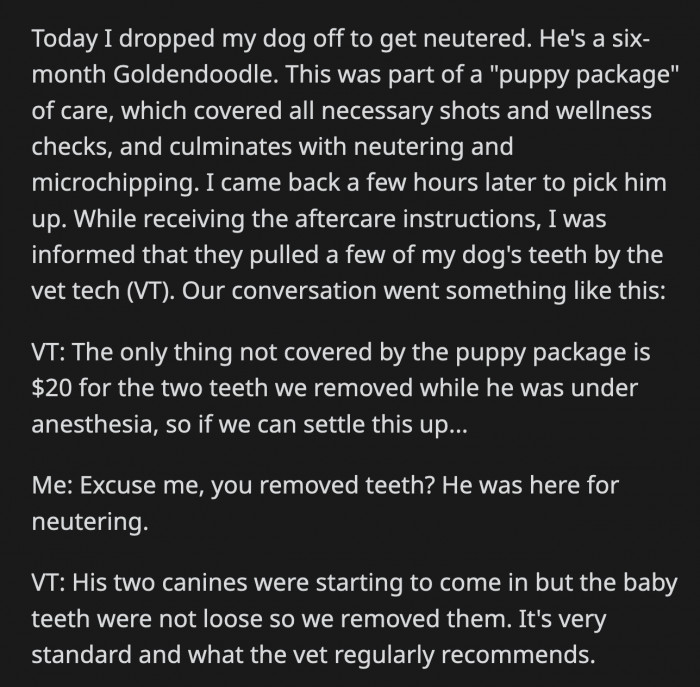
OP argued that it was not about the money; he said they should have given him a heads-up before proceeding with the extraction.
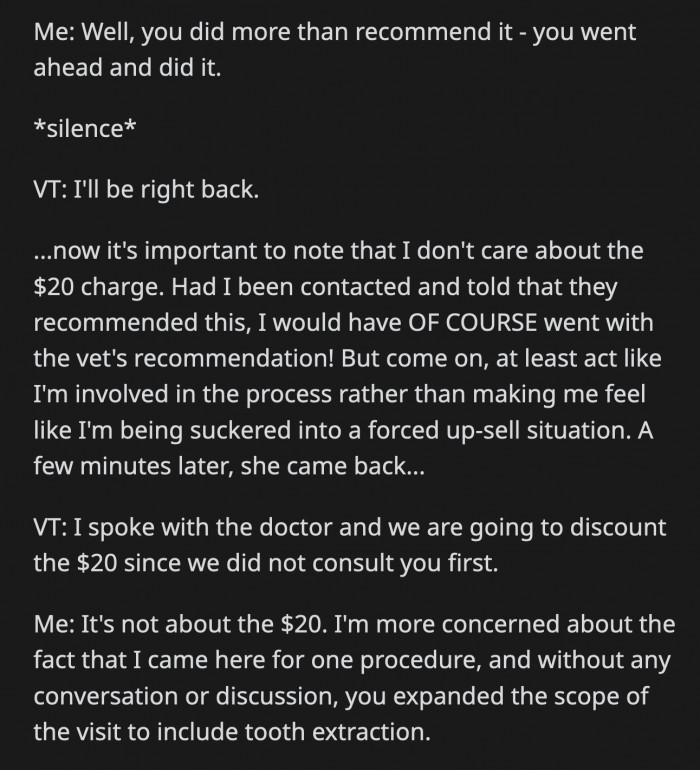
Understanding Ethical Boundaries in Veterinary Care
The situation involving the dog’s neutering and unauthorized tooth extraction highlights critical ethical considerations in veterinary practice. Veterinary ethics emphasizes the importance of informed consent, which is foundational to the human-animal bond.
According to the American Veterinary Medical Association, informed consent ensures that pet owners are fully aware of the procedures being performed and their implications, fostering trust between veterinarians and clients.
The Importance of Informed Consent
The case of a dog undergoing an unconsented procedure highlights the critical importance of informed consent in veterinary medicine. Ethical guidelines in veterinary care emphasize that pet owners must be fully informed about any procedures their animals will undergo, ensuring they can make educated decisions. Research in veterinary ethics emphasizes that clear communication between pet owners and veterinary staff is essential for building trust and ensuring the welfare of the animal.
Failure to obtain consent not only undermines the owner's trust but can also lead to emotional distress for both the owner and the animal. This incident raises important questions about ethical practices in veterinary care and the need for stringent adherence to consent protocols.
They waived the $20 because OP was not informed beforehand, but that vet tech couldn't quite grasp why OP felt blindsided.
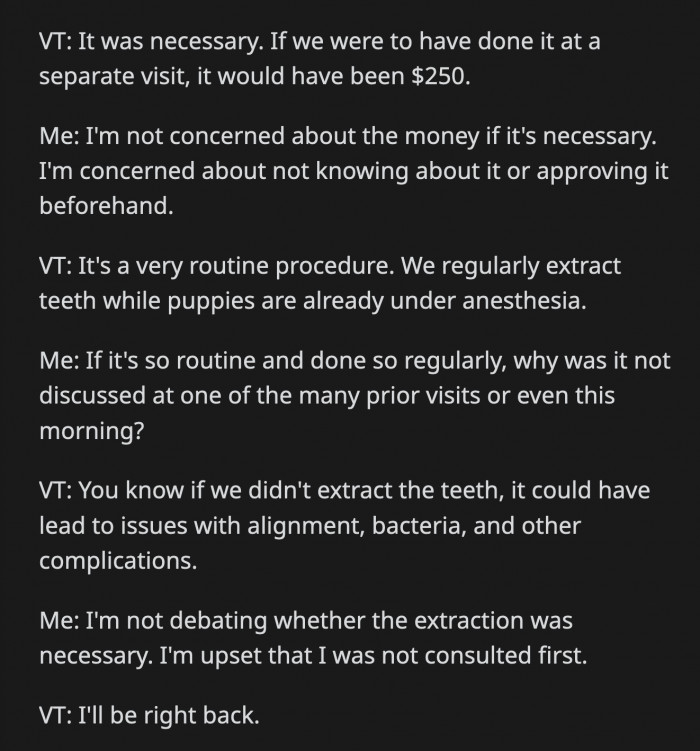
She brought him his dog back, and OP felt like he was unreasonable for causing a fuss over what happened. But is he really at fault for getting upset over a surprise medical procedure he didn't consent to on behalf of his dog?
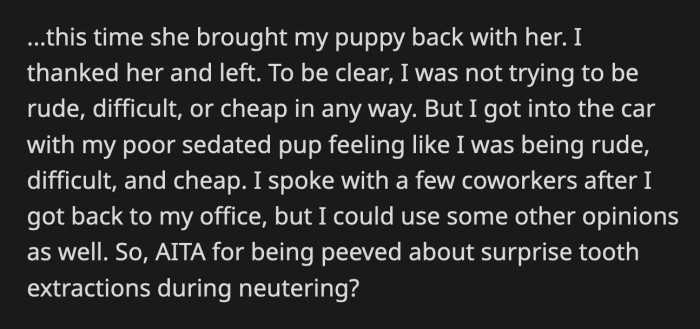
OP added a few details after his post received a lot of attention. His neutered and toothless pup was thankfully okay after the ordeal.
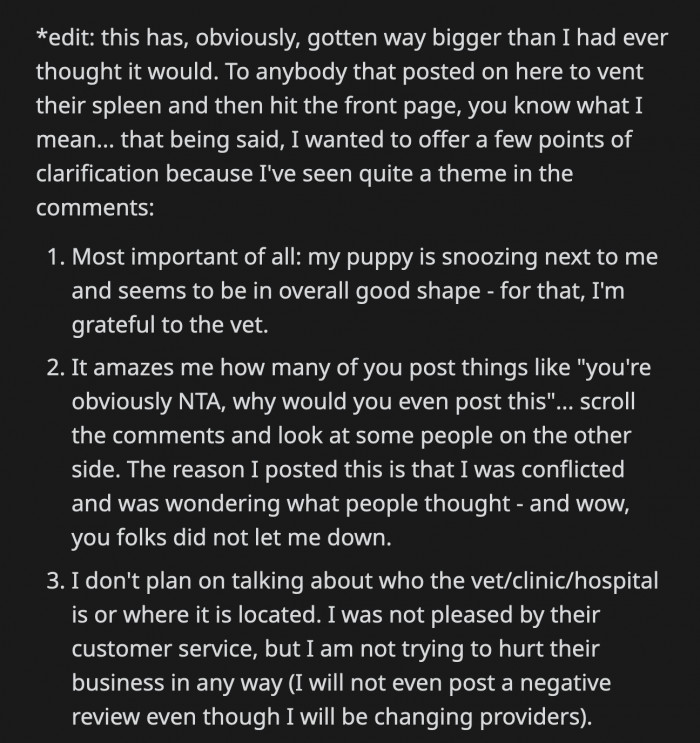
Furthermore, this incident raises questions about communication and transparency in veterinary care. Research indicates that effective communication is vital for building trust and ensuring that clients feel empowered in their decision-making processes.
Studies in health communication show that when clients are kept informed and involved, they are more likely to have positive experiences and outcomes, both for themselves and their pets.
From a psychological perspective, incidents like this can lead to feelings of helplessness and anger among pet owners. Research in trauma psychology indicates that perceived loss of control can trigger stress responses, leading to anxiety and mistrust in future veterinary interactions. This can create a cycle of fear and avoidance regarding necessary veterinary care, ultimately jeopardizing the animal's health.
OP stated again that he wasn't upset over the procedure. He was upset because they didn't bother to inform him about it, therefore not giving him a chance to agree to it.
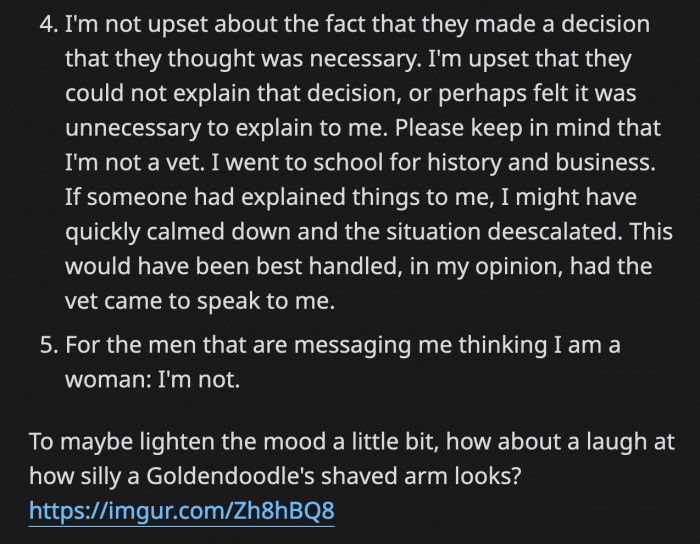
OP's pup is soldiering on despite the amusing shaved part of his leg.
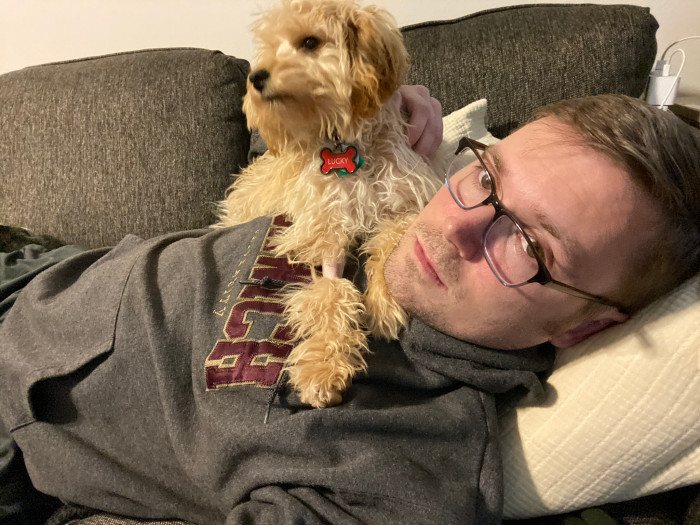
OP has no problem with the procedure happening; he really was just upset over the fact that they didn't inform him of it happening.
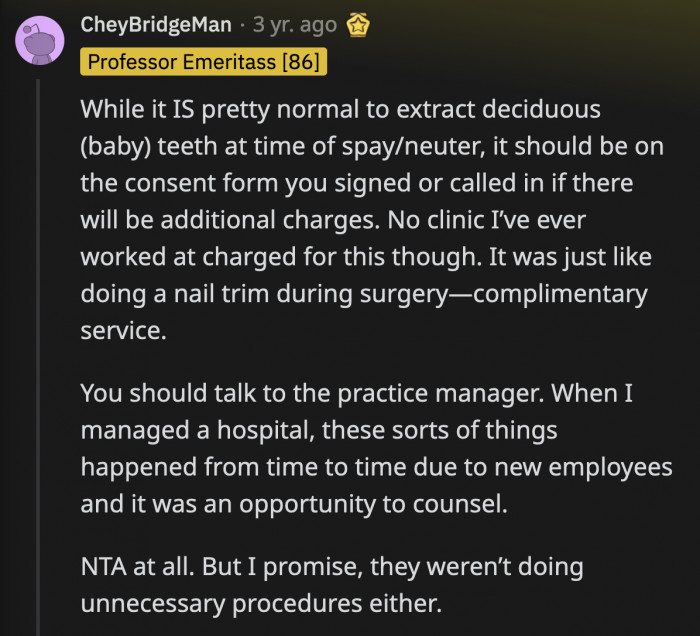
The Psychological Impact of Breach of Trust
When trust is broken in a veterinarian-client relationship, it can lead to significant psychological distress for pet owners. A clinical psychologist notes that feelings of betrayal and loss of control can elicit strong emotional responses, including anxiety and anger.
This breach of trust can also affect how pet owners perceive and interact with veterinary services in the future, potentially leading to avoidance behaviors or reluctance to seek care.
The Role of Trust in Veterinary Relationships
Trust is a fundamental component of the human-animal bond, significantly influencing the dynamics between pet owners and veterinary professionals. Studies show that when trust is compromised, it can lead to a breakdown in communication, impacting the overall quality of care received by the animal. Trust-building strategies, such as clear communication about procedures and ensuring the owner's understanding, are vital in fostering positive veterinary experiences.
Veterinary professionals should prioritize transparency and empathy, recognizing the emotional investment owners have in their pets' well-being.
It should be on the consent form...
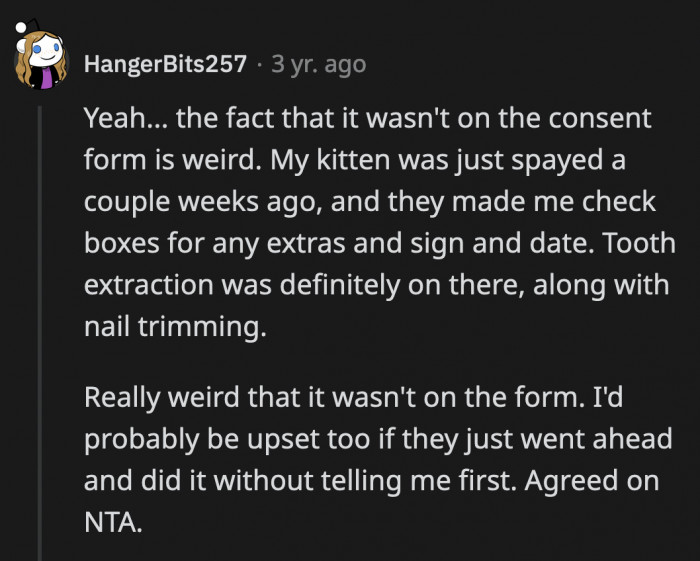
We have no way of knowing for sure, but they also could have mentioned it in passing just to get OP's verbal approval because a lot of people sign those forms without really reading the contents.
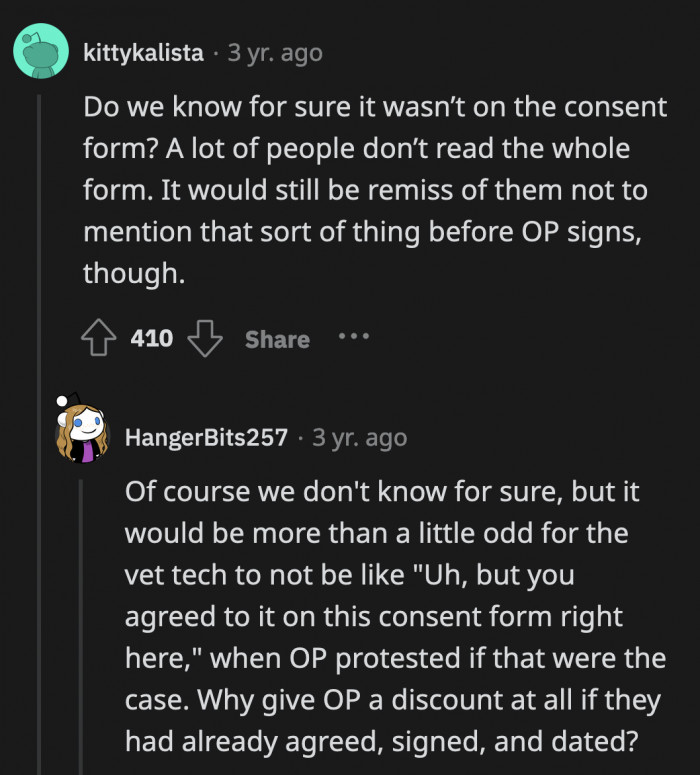
The vet tech and the vet definitely did not handle the situation well. They could have done what this comment said instead of brushing off OP's valid concern.
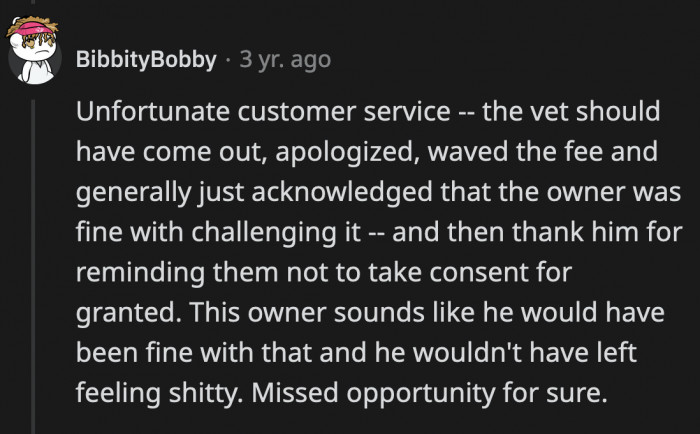
Additionally, the emotional bond between pet owners and their animals complicates these feelings. Research indicates that pet ownership is often associated with strong emotional connections, which can amplify the distress experienced when a pet undergoes an unexpected procedure.
Understanding these emotional dynamics can help veterinary professionals navigate conversations about sensitive topics and provide support to distressed pet owners.
Moreover, the lack of consent can exacerbate feelings of guilt and self-blame among owners, particularly if the animal experiences negative outcomes following the procedure. Research in clinical psychology emphasizes that guilt can be debilitating, leading to avoidance behaviors and strained relationships. It’s essential for veterinary professionals to provide emotional support to owners post-procedure, helping them navigate their feelings and reinforcing their role as responsible caregivers.
They messed up for sure, but it's not enough to count as malpractice, as other comments were quick to say.
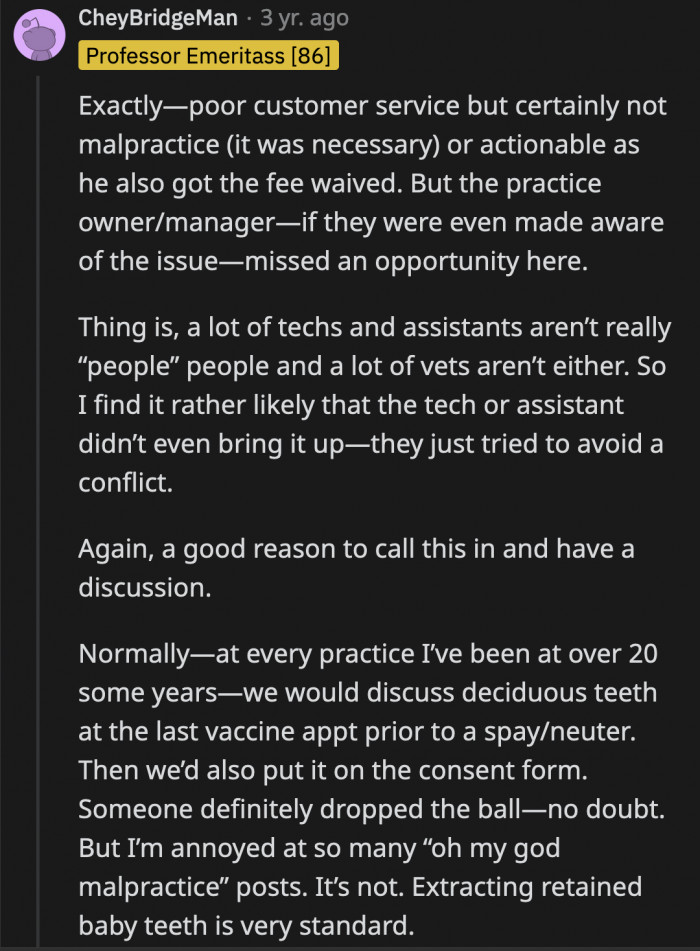
Instead of lodging his complaint with the vet tech, OP should have gone straight to the vet—the person who performed the procedure—to clear the air.
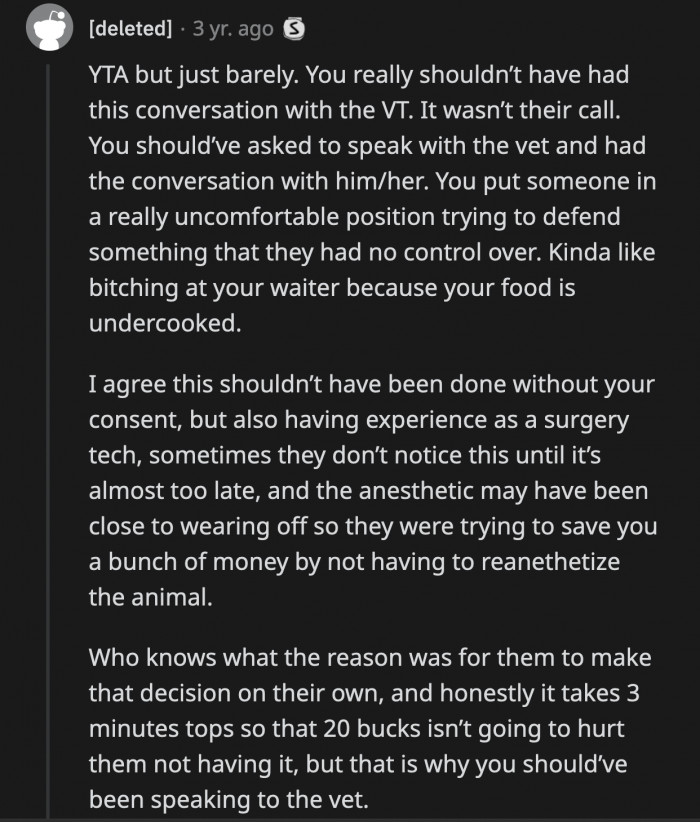
OP can still talk to the vet, if only to make sure this kind of situation doesn't happen again to other pets and their owners.
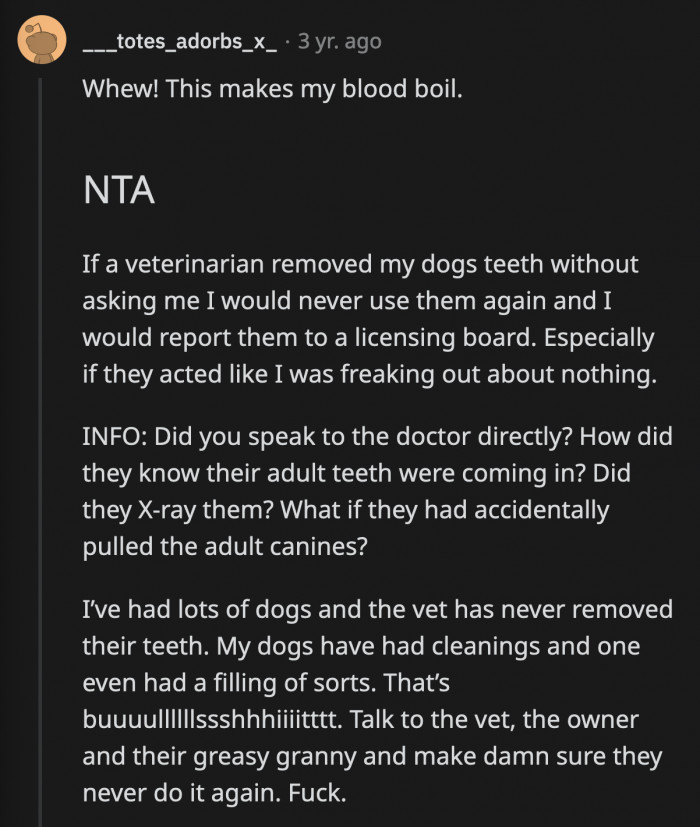
Practical Recommendations for Veterinarians
Veterinarians can mitigate potential distress by fostering open communication and ensuring informed consent in all procedures. Establishing clear protocols for discussing treatment options and obtaining consent can enhance trust and transparency.
Additionally, incorporating client education about common procedures and their risks can empower pet owners to make informed decisions regarding their pets’ health.
Recommendations for Veterinary Practices
To prevent situations like this from occurring, veterinary practices should implement comprehensive consent protocols, ensuring that all procedures are clearly communicated to pet owners. Regular training on the ethical dimensions of veterinary care can enhance staff understanding of the importance of informed consent. Additionally, fostering an environment where questions are welcomed can empower owners to speak up about their concerns, ultimately improving trust and collaboration.
Furthermore, follow-up consultations can provide an opportunity to address any emotional fallout from the procedure, reinforcing the importance of the owner’s role in their pet's health care.
Not informing the owner of what could and would happen during the procedure can result in negative consequences.
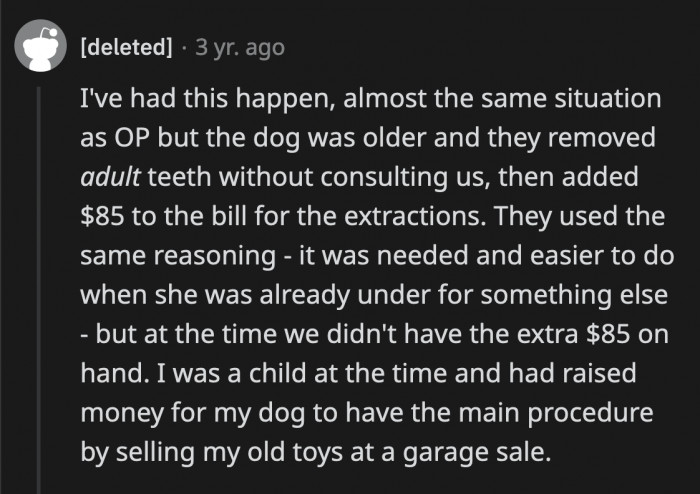
Like this owner who had to watch her poor dog suffer for a few months before it passed because the vet didn't inform them of their options.
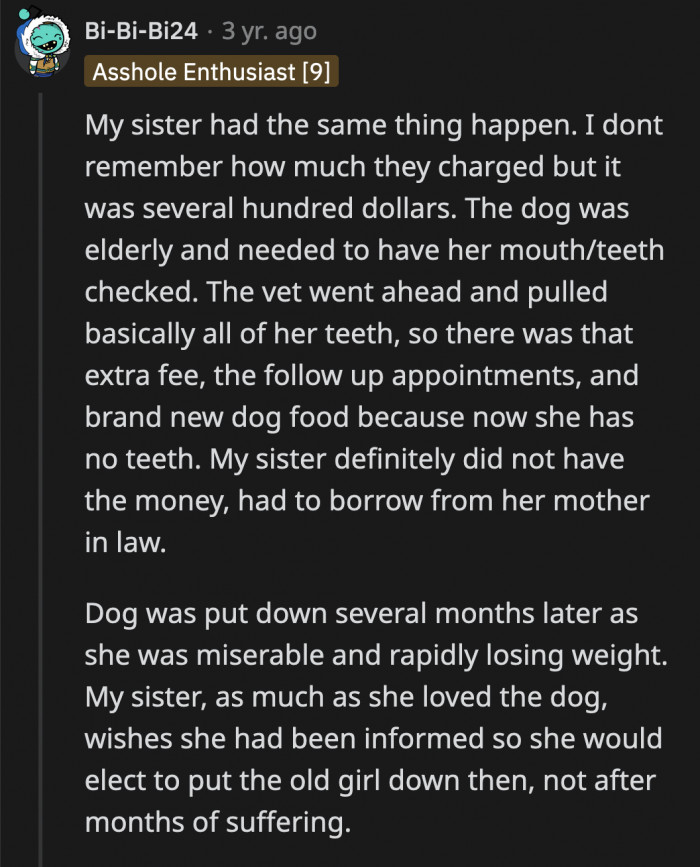
Precisely; they should have communicated it before proceeding with the extraction. OP did the right thing by not doxing them online.
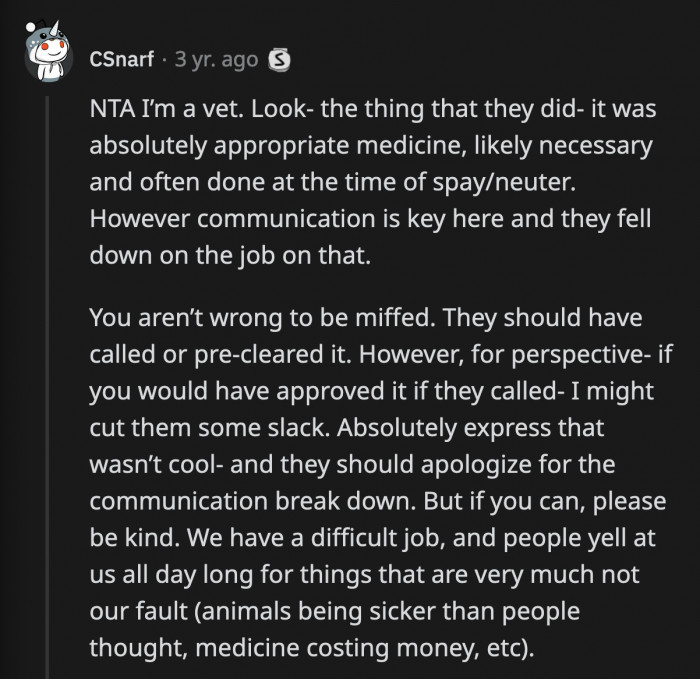
Lastly, aftercare support is crucial in rebuilding trust with pet owners post-incident. Providing resources for emotional support and encouraging open dialogue about any concerns can help alleviate anxiety and restore the veterinarian-client relationship.
By prioritizing ethical practices and emotional support, veterinarians can enhance overall client satisfaction and promote positive experiences in veterinary care.
Encouraging pet owners to voice their preferences and concerns fosters a collaborative approach to veterinary care. This partnership can enhance the quality of care while ensuring that owners feel respected and valued in the decision-making process. By prioritizing open dialogue, veterinary professionals can create a more supportive environment for both pets and their owners.
OP's dog is better because of the procedures, BUT it doesn't erase the fact that they took OP's right to make a decision on behalf of his dog.
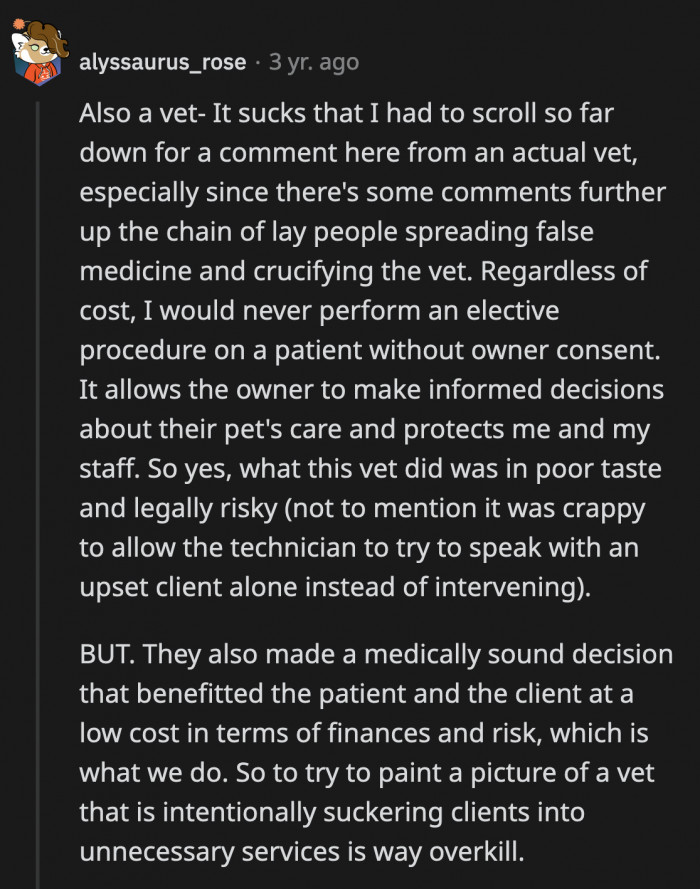
There is no way you can trust the clinic again after a thing like this happened. OP definitely doesn't, hence why he's changing vets for his dog.
The vet and the vet tech dropped the ball when they didn't inform OP about the extraction prior to the procedure. You are your pet's only advocate, and they took that from OP when they didn't communicate things clearly.
The Psychological Impact of Veterinary Experiences
Experiences like this can significantly shape an owner's perception of veterinary care. Psychological studies indicate that negative experiences can lead to long-lasting aversions, impacting future interactions with veterinary professionals. It’s crucial for practices to recognize this impact and work proactively to rebuild trust, ensuring that owners feel comfortable seeking care for their pets in the future.
Implementing strategies that emphasize empathy and understanding can mitigate negative feelings and encourage a more positive relationship between owners and veterinary staff.
Psychological Analysis
This incident underscores the critical need for informed consent in veterinary practice. Ensuring that pet owners are fully informed and involved in decision-making fosters trust and promotes better outcomes for the animals.
Analysis generated by AI
Analysis & Alternative Approaches
In conclusion, informed consent is a cornerstone of ethical veterinary practice that has profound implications for the human-animal bond. By prioritizing clear communication and trust-building, veterinary professionals can enhance the emotional well-being of both pets and their owners.
Fostering a supportive environment will not only improve the quality of care but also strengthen the relationships between owners and veterinary staff, ultimately benefiting the animals they care for.
Analysis & Alternative Approaches
In conclusion, the incident involving the unauthorized extraction of the dog’s teeth underscores the importance of ethical practices in veterinary care. By prioritizing informed consent and effective communication, veterinarians can foster trust and enhance the emotional well-being of both pets and their owners.
Addressing the psychological impact of such breaches can lead to more supportive and compassionate veterinary services, ultimately benefiting the entire pet-owning community.



